
Farmer Success Stories: Part 2
SRP has spent 10 years cultivating a secure and sustainable future for the global rice industry.
Through our Registered Projects, as well as our Assurance Scheme and the SRP-Verified Label, SRP is effectively reaching stakeholders throughout the global rice supply chain.
To celebrate 10 years of transforming the global rice sector, we proudly present Part 2 of SRP’s 10 farmer success stories from the past decade. If you didn’t get a chance to read Part 1, you can find it here.
1.Rana Mehboob, Pakistan
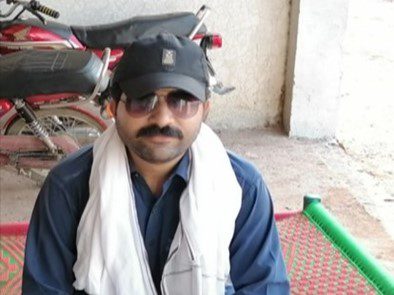
Rana Mehboob, a veteran rice farmer who owns 15 acres (six hectares) of land, was initially cautioned by his fellow farmers that following SRP practices would be a fruitless exercise. “But I thought differently and was determined to follow my instincts,” he said. Rana Mehboob believed that techniques such as AWD, bird perches, pest scouting, and land leveling had greatly increased the fertility of Rana Mehboob’s land without degrading it. These practices are not only environmentally friendly, but they are also cost-effective.
“The yields of my harvests have been outstanding,” he said, “and I can say with confidence that the SRP and its tools are indeed life-changing for the farming community.”
Source: Atlas Foods (Pvt) Ltd
2. Sinsamut Kongprayot, Thailand
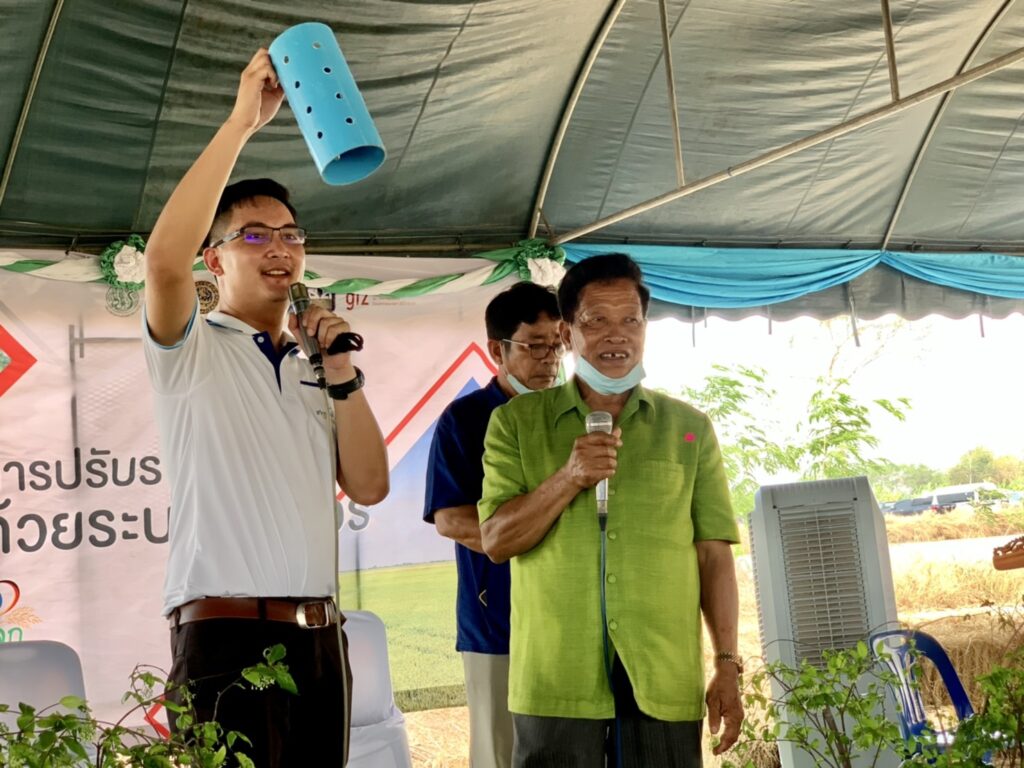
Sinsamut Kongprayot, a rice farmer in Ayutthaya, has adopted the laser land leveling (LLL) method for his 25 rai (four hectares) of fields. “The LLL technology helps me manage my rice fields and save water effectively,” he said. “Now, I do not have to pump water all day and night for use in my rice fields. Such low-carbon rice farming technologies should be accessible for all Thai farming communities, so that farmers can then be able to help transform the rice sector into a sustainable one.”
Source: Thai Rice NAMA
3. Sorn Sokhorn, Cambodia
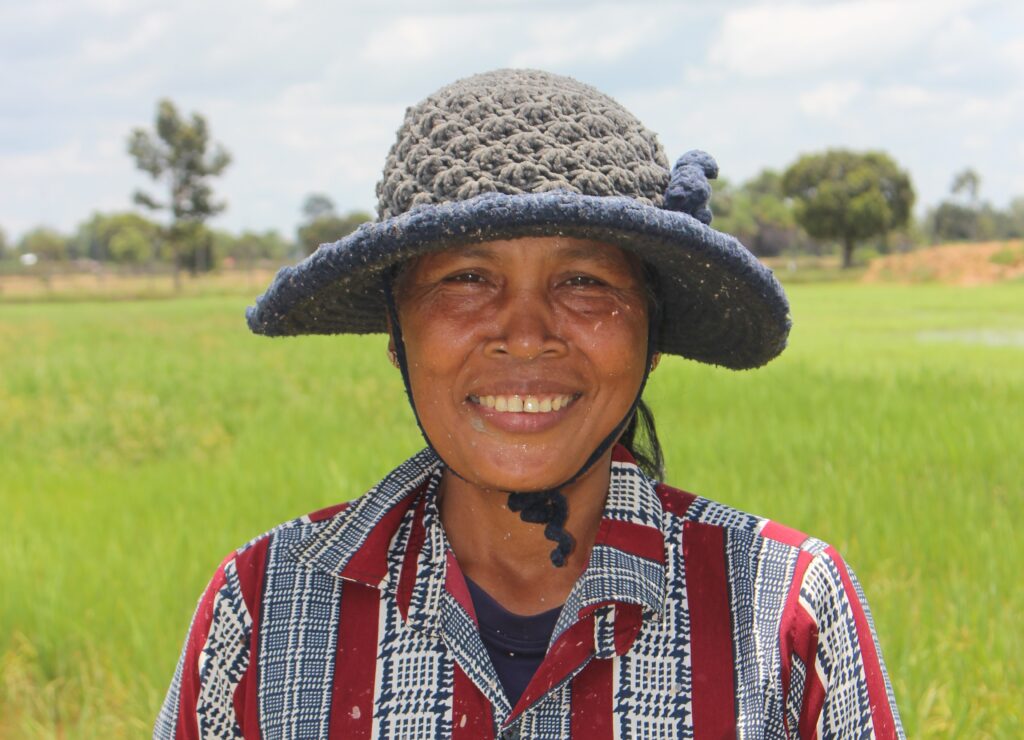
Sorn Sokhorn joined the SRP program back in 2016 in hopes of selling rice at a reasonable price. The SRP program provided training, daily checkups, and other support during cultivation, resources she found liberating.
“I don’t have to worry about seeking markets and can focus fully on the rice production process,” she said. “Being part of this program really supports my family’s livelihood, and I cannot thank SMP Cambodia enough for selecting me to be part of SRP.”
Source: SMP Cambodia
4. Udorn Khamwongsa, Thailand
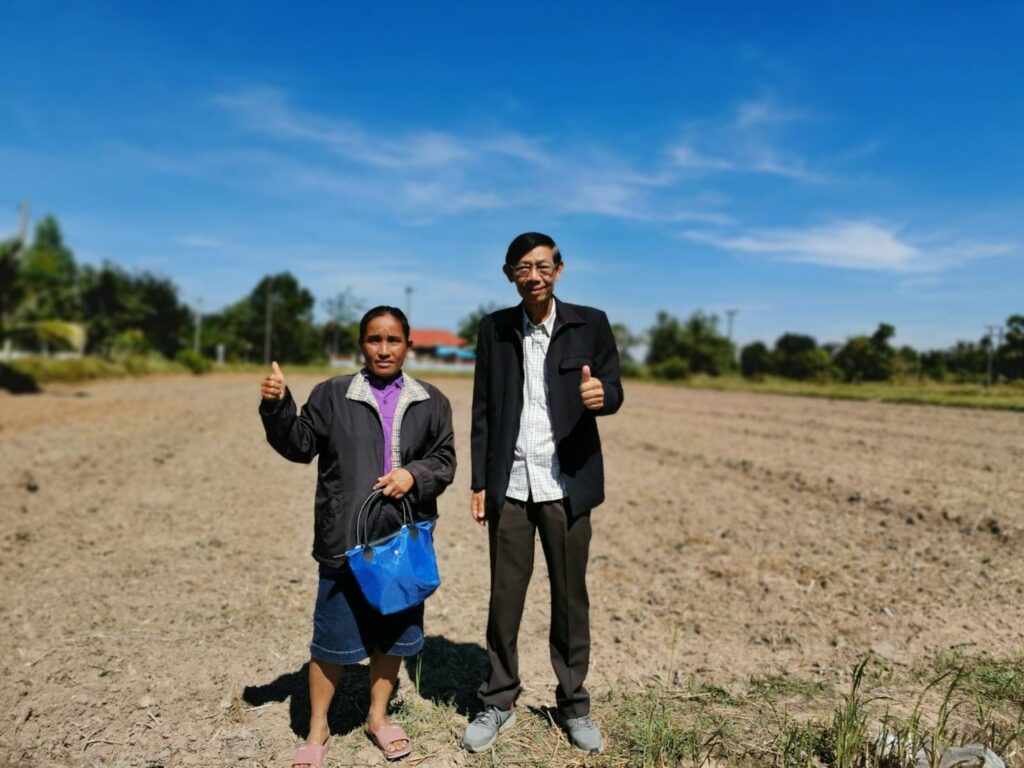
Udorn Khamwongsa switched from working as an electrician in northern Thailand to becoming a full-time farmer in her hometown. After attending The Market-oriented Smallholders Value Chain Project Thailand (MSVC TH), Udorn Khamwongsa began to see the value in crop calendars as it helps her determine the exact time for seeding, sowing, fertilizing, and harvesting for her crops. She has also put into practice recommendations given by instructors and project staff on the efficient use of fertilizer and chemicals, significantly improving soil quality while reducing costs.
Source: GIZ Thailand, MSVC TH
5. Winyoo Weerananthawet, Thailand
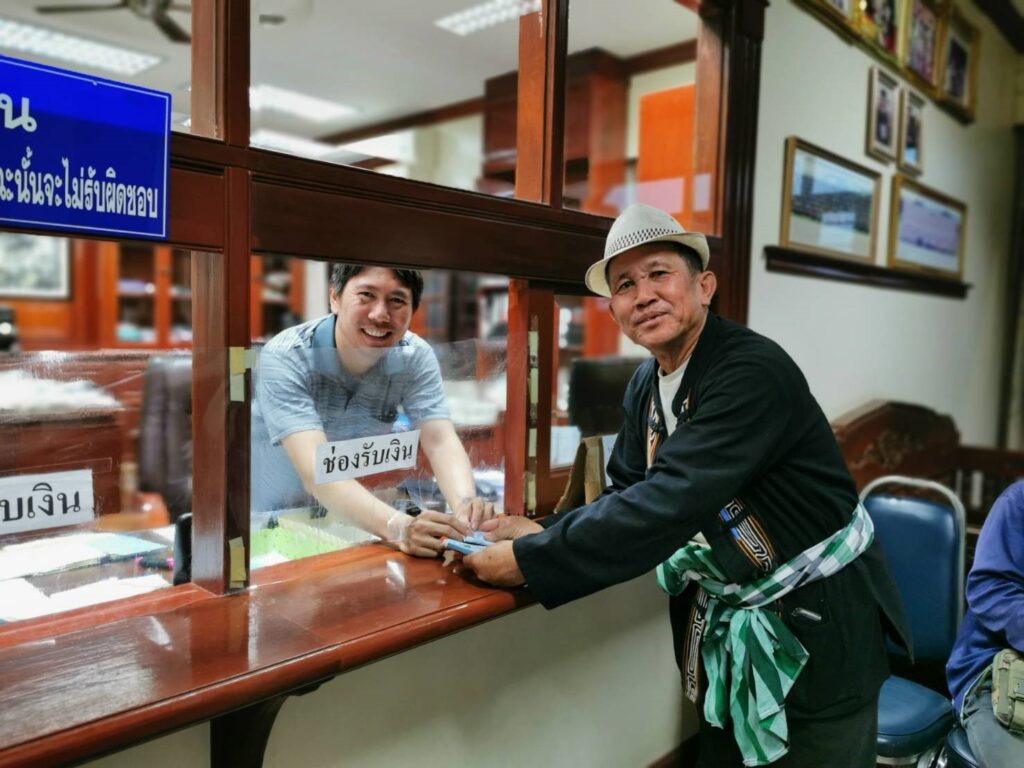
A miller who joined the MSVC TH project due to concerns over local rice quality, Winyoo Weerananthawet learned the methods and admixtures that enable farmers to avoid burning off rice residue, which in turn produces agri-waste.
Today, Winyoo Weerananthawet’s company helps raise consumer awareness about the project on social media. He is hopeful that the public and private sectors will help promote sustainable rice, and adopt the MSVC TH project as a model for expanding this production method to other parts of the country.
Source: GIZ Thailand, MSVC TH
We have reached almost 400,000 farmers since establishing SRP 10 years ago, and these stories are just a sample of how our efforts have helped individual farmers as well as the sector as a whole. We plan to achieve far more in the next 10 years and beyond, so please consider becoming a member today. Together, we can feed the world. Sustainably.












